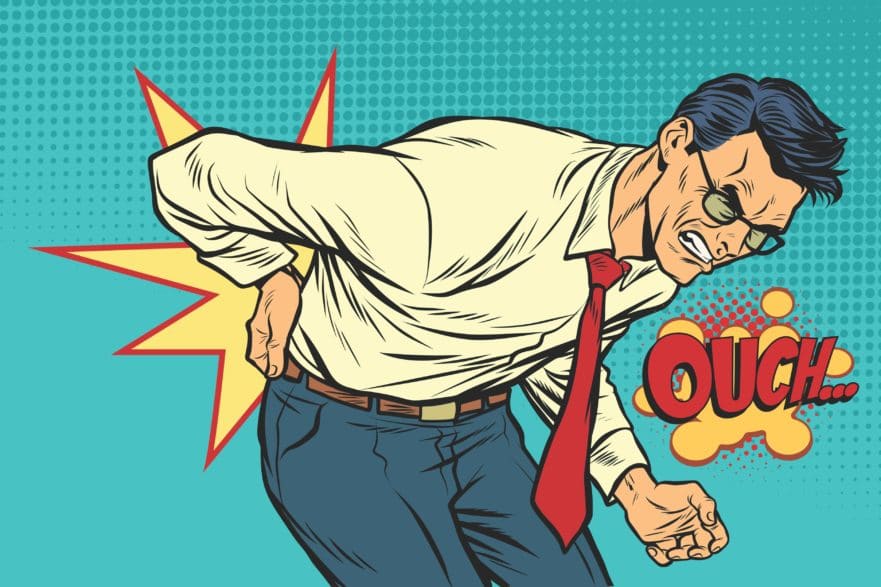We all feel pain from time to time. When you stub your toe or burn your hand on a hot stove, your body alerts you to the fact that something is wrong through the pain. As an injury heals, the pain begins to go away.
Chronic pain is a different beast. With chronic pain, your body may be in a state of pain for months, weeks, or years at a time. In fact, chronic pain is often defined as any pain that lasts for longer than three months, and is often described as dull, and aching.
Chronic pain affects all areas of a person’s life. Not only is there an almost-constant state of physical discomfort, but mental health often gets impacted, too. Chronic pain often interferes with day-to-day life and may prohibit the sufferer from doing the things they need to do. As a result, many who suffer from chronic pain also experience anger, depression, and anxiety.
Biofeedback can be used to control a person’s body, which leads to enhanced physical performance and mental health. With biofeedback, a person is connected to electrical sensors that provide information about one’s body. That information can be used to make subtle changes within one’s body that can reduce pain.
Let’s dig deeper into how biofeedback helps a person deal with chronic pain.
How Does Biofeedback Work?
A biofeedback assessment will increase your understanding of how your body reacts to pain. Biofeedback training will teach you how to counteract the stress response using several kinds of techniques.
In a biofeedback session, sensors are attached to the patient’s body and to a monitoring device. The monitoring device tracks different functions of the body, including breathing, heart rate, skin temperature, perspiration, and more. Many of these functions happen unconsciously.
However, the biofeedback process enables people to recognize that these things can also be consciously controlled.
The experience is not unlike those that happen during yoga or meditation. By calming the mind and focusing on breathing and relaxing muscles, patients can actually control some of the “behind-the-scenes” functions of the body. This, in turn, can be used to reduce the body’s stress response. Connecting cognitive abilities with involuntary body functions can help people to retrain their bodies on how to react to stress.
Looking For Therapy?
Start Healing Today.
212-960-8626
One way this happens is through visualization. The patient is able to see body functions and measurements occurring on a screen in real-time. Becoming aware of the body’s reaction to different stressors is the first step. From there, a biofeedback therapist can use any one of multiple approaches, including breathing, guided imagery, or relaxation, to retrain the body’s natural response using conscious techniques.
When it comes to the body’s pain response, similar results can be achieved. Muscle tension is often involved with chronic pain. Tension occurs in anticipation or in response to pain or stress or fear, or simply due to staying in an uncomfortable position. Biofeedback training can help patients identify when their muscles are getting tense and learn to release the tension before the pain appears.
Understanding the mind-body connection in relation to chronic pain is crucial to reducing it. The muscle spindle theory of pain suggests that pain is brought on via the nervous system, which activates stress signals in the sensory organs (called muscle spindles) when undergoing stress or strong emotions. In a nut shell, this explanation states that stress and anxiety actually makes pain worse.
The gate theory of pain goes a step further in explaining the relationship between mental health and chronic pain. This theory says that nerve fibers in the spinal cord contain gates than can open or close to influence how much of the pain impulses reach the brain. Emotional states can open or close these pain gates, with more positive emotions helping to close the gates and more difficult emotions keeping the gates open.
Start Healing
Our compassionate and skilled therapists at Manhattan Mental Health Counseling are ready to help you explore the depths of your emotional well-being. We prioritize easy access for our clients and accept a wide range of insurance plans.
Can’t make it into our office for in-person appointments? No problem. We are more than happy to provide online sessions in the comfort of your own home.
Contact us today by calling 212-960-8626 or by filling out our online contact form.

